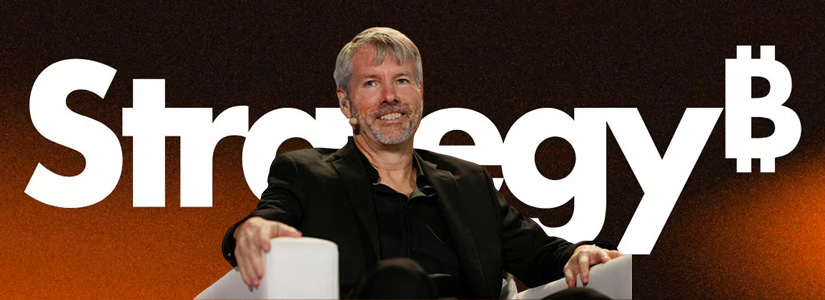TL;DR
- Michael Saylor states that Bitcoin is firmly established as “digital gold” and that its price will continue rising due to institutional adoption and BTC ETFs.
- BTC functions as digital capital for new credit instruments.
- Banks such as JPMorgan, Citibank, and Wells Fargo accept BTC and ETH as collateral.
Michael Saylor, founder of Strategy, reaffirms that Bitcoin is established as “digital gold” and that its price will continue to grow in the long term. According to Saylor, the approval of BTC ETFs in the United States last year accelerated its acceptance as a store of value, while the March 2025 crypto summit reinforced this view among institutional investors.
Saylor compared Bitcoin to gold-backed loans, which historically held a central role in the Western financial system. In his view, BTC acts as digital capital, serving as the foundation for a new generation of credit and financial instruments that leverage the benefits of asset tokenization. The digitization of money, stocks, bonds, and other real assets has strengthened networks like Ethereum, boosting adoption and fostering the expansion of digital finance.
Bitcoin: Institutional Support Is Key
The Strategy founder emphasized the importance of institutional participation. Banks such as JPMorgan, Citibank, and Wells Fargo have revised their crypto policies, allowing Bitcoin and Ethereum to be accepted as collateral. This shift reflects the growing recognition of digital assets’ value within the traditional financial infrastructure.
Saylor noted that MicroStrategy was the first Bitcoin-focused company to receive an S&P credit rating. The company’s products have been adopted by various institutional funds, including BlackRock’s PFF fund, enhancing confidence among major investors in the company and in the BTC accumulation strategy as a core asset within institutional portfolios.
Strategy’s goal is to reach a $300 billion Bitcoin portfolio, promoting global BTC adoption through digital lending tools. For Saylor, this approach combines the security and reliability of traditional financial infrastructure with the advantages of tokenization and decentralization, creating an ecosystem where digital assets serve functions similar to conventional capital instruments.
The positioning of Bitcoin as digital gold and the integration of Ethereum in tokenization processes provide clear evidence of a broader trend: institutional adoption is consolidating digital assets as strategic components in global finance.












